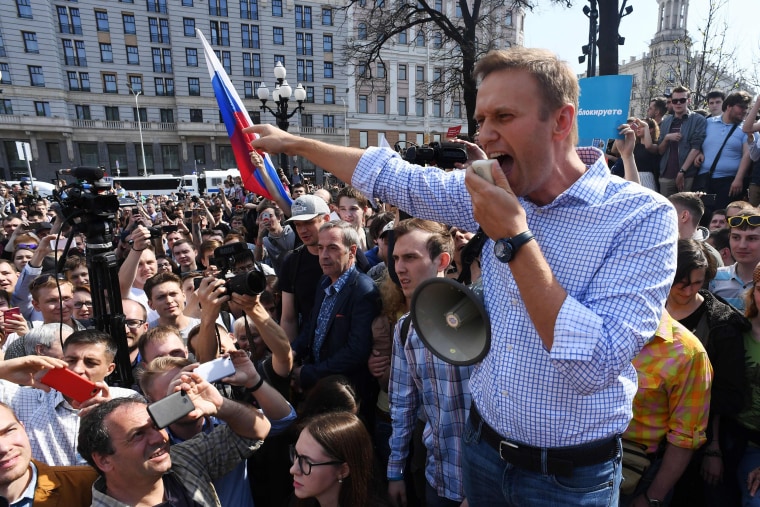Medical tests on Kremlin critic and opposition leader Alexei Navalny have found no traces of poisoning, Russian doctors said Friday, before they later agreed that he could be transferred to Germany for treatment.
Navalny, 44, remains in a coma in a hospital in the city of Omsk in Siberia after his supporters say he was poisoned.
Having initially said that he was in too unstable a state to be safely transported out of the country, Russian doctors said Friday afternoon that they would not object to him being moved after a German medical team was granted access to Navalny and said they thought he was fit to travel.
The German doctors flew in on Thursday at the request of Navalny's wife Yulia and supporters who said they feared authorities might try to cover up clues as to how he fell ill. They also claimed the hospital treating Navalny was badly equipped.
On Friday morning, Yulia appealed to the Kremlin directly, asking it to intervene and grant permission for her husband to be allowed to fly out.
She published a letter to Russian President Vladimir Putin on social media, requesting that he allow her husband to be transported to Germany, where the Cinema for Peace Foundation, a Berlin based nonprofit, said it would facilitate his medical care.
Her request came after doctors at the hospital in Omsk insisted that Navalny had not been poisoned.
"Poisoning as a diagnosis remains on the back burner, but we don't believe that the patient suffered from poisoning," deputy chief doctor Anatoly Kalinichenko told reporters Friday.
Alexander Murakhovsky, head doctor at the hospital, later said Navalny had been diagnosed with a metabolic disease that may have been caused by low blood sugar, adding that traces of industrial chemical substances had been found on his clothes and fingers.
The 44-year-old lawyer fell ill on a flight to Moscow from the Siberian city of Tomsk on Thursday and was taken to a hospital after the plane made an emergency landing in Omsk.
A prominent member of Russia's opposition, Navalny campaigned to challenge Putin in the 2018 presidential election but was barred from running. He has frequently been detained by law enforcement and in 2017 was attacked by several men who threw antiseptic on his face, damaging his eye.
Last year, Navalny was rushed to a hospital from prison with what his team said was suspected poisoning. Doctors said he had a severe allergic attack and discharged him the following day.
Download the NBC News app for breaking news and politics
The Cinema for Peace Foundation said Thursday that Berlin's Charite hospital was ready to treat him.
Allies of the stricken Navalny had earlier accused the Kremlin of thwarting his evacuation, saying the decision placed his life in mortal danger because the Siberian hospital treating him was under-equipped.
"The ban on transporting Navalny is an attempt on his life being carried out right now by doctors and the deceitful authorities that have authorized it," his spokeswoman Kira Yarmysh wrote on Twitter.
"This decision, of course, was not made by them, but by the Kremlin," she added.
But Kremlin spokesman Dmitry Peskov said Thursday that an investigation would be launched if it turned out Navalny was indeed poisoned, according to the state-run TASS news agency.

German Chancellor Angela Merkel urged Russia to "clear up" the circumstances of Navalny's illness, quickly and transparently. She spoke Thursday alongside French President Emmanuel Macron who added that France was ready to give Navalny all necessary assistance, including asylum, and would closely follow the investigations.
The White House national security adviser Robert O'Brien also said Thursday the suspected poisoning was very concerning and could affect U.S.-Russia relations.
"He is a very courageous politician to have stood up to Putin inside Russia, and our thoughts and our prayers are with him and his family," O'Brien said in an interview on Fox News.
"It's extraordinarily concerning and if the Russians were behind this ... it's something that we're going to factor into how we deal with the Russians going forward," he added.
Navalny spent time in the United States on a fellowship at Yale University, something pro-Kremlin critics have seized on as evidence that he is a foreign agent.
A small group of Navalny's supporters gathered outside his hospital Friday, demanding his medical evacuation.
Reuters and The Associated Press contributed to this report.
